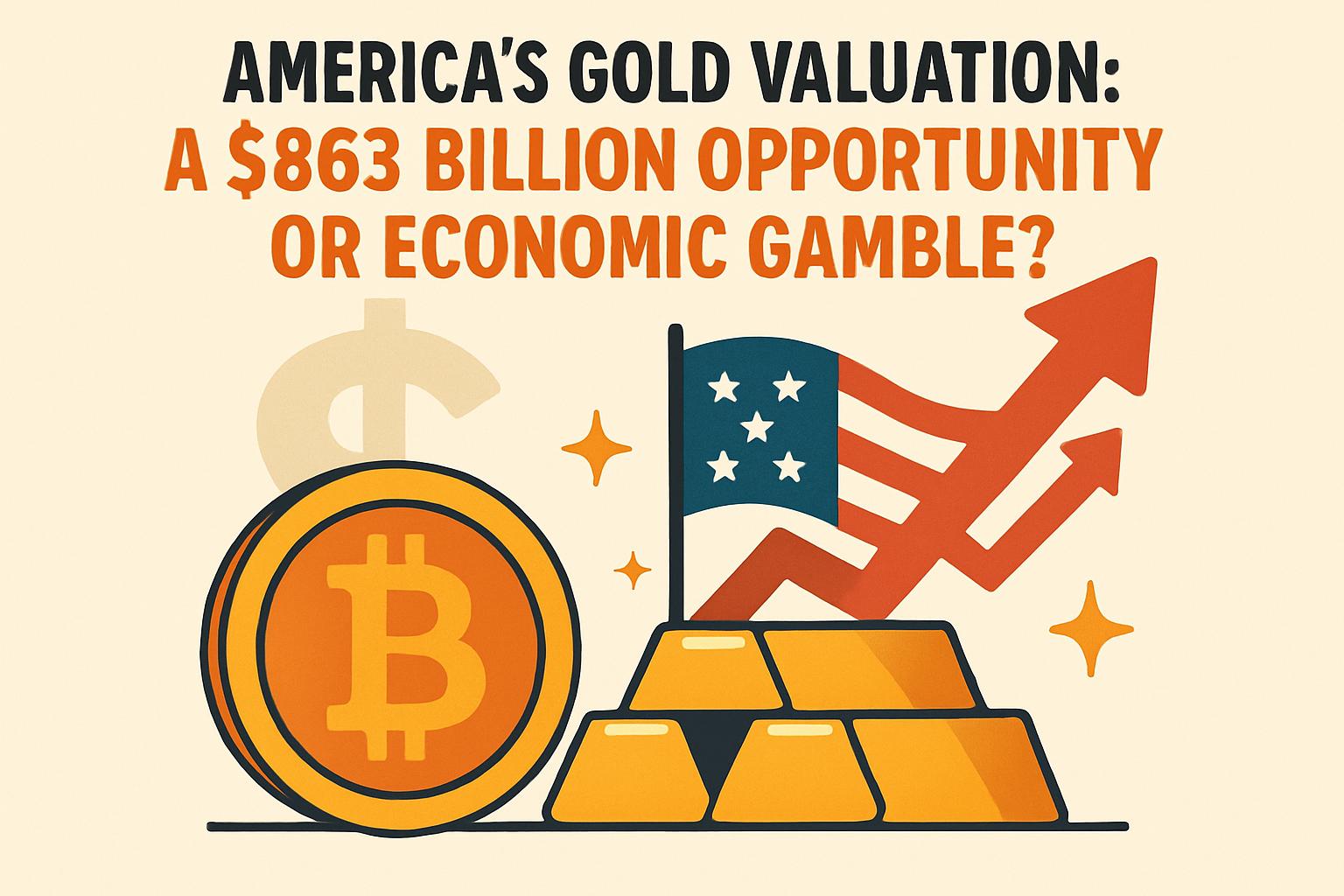In the ever-evolving landscape of global finance, the notion of re-evaluating America’s gold reserve has once again come to the forefront—sparking both intrigue and speculation. As the holder of the world’s largest gold reserve, the United States controls 261.5 million troy ounces of gold. Under a revaluation at the current market price of approximately $3,300 per ounce, this could theoretically unlock a staggering $863 billion dollars, presenting both opportunities and challenges.
A Potential Windfall in Revaluation
Currently, the U.S. gold reserves are valued based on an antiquated price of $42.22 per ounce, a remnant of the past set by the government in 1973. By aligning with the present market value, the difference would amount to an unexpected windfall of $863 billion. This capital could be deployed to pay down national debts, support cryptocurrency strategies such as Bitcoin reserves, or even establish a sovereign wealth fund.
The Catalyst: Policy and Speculation
The Trump administration, through Treasury Secretary Bessent, has hinted at exploring “monetary asset monetization,” igniting discussions around gold revaluation. His remarks have stirred the market, especially as the administration explores budget-neutral options to expand Bitcoin reserves—a strategic move towards enhancing America’s leadership in digital currencies.
Wall Street analysts have pondered over this possibility, noting that such a revaluation could generate the funds needed for a crypto reserve strategy or debt reduction—sans tax hikes or increased borrowing. However, they caution against potential instability this move might signal for the dollar-based system.
The Historical Echoes: Lessons from the Past
Evaluating the implications requires a reflection on history. The 1971 termination of the Bretton Woods system, which ended the dollar’s convertibility into gold, led to significant shifts in economic policy. Following this, the dollar saw a depreciation of 38% between 1973 and 1978.
A revaluation now could have parallel consequences, questioning the dollar’s reliability and prompting capital flight. Critics argue that it might indicate fiscal desperation, further destabilizing markets and exacerbating dollar depreciation.
Strategic Considerations and Global Ramifications
The Federal Reserve’s latest studies outline potential paths where governments might fund expenditure without tax hikes or adding to the nation’s debt, with gold revaluation emerging as a prominent option. Despite reservations from officials like Secretary Bessent, whose February comments dismissed revaluation as unlikely, the mere consideration reflects a strategic shift in economic policies.
While official implementation might require congressional approval and gold audits, the speculative buzz around this possibility remains significant. It raises a broader question: Could this be a new form of quantitative easing or does it resonate with the digital currency era, nudging investors towards Bitcoin?
As nations navigate the complexities of modern finance, the conversation around gold revaluation opens doors to profound shifts in the economic order. Will this become a pivotal turning point in reshaping America’s financial terrain, or merely a fleeting speculative hypothesis?

![[News] Bitcoin at a Turning Point? 10x Research Signals a Bullish Macro Shift Ahead](https://cryptoexplores.com/wp-content/uploads/2025/06/new20250616.jpg)
![[News] Binance Lists $HOME, the Gas-Free, Bridge-Free All-in-One DeFi App](https://cryptoexplores.com/wp-content/uploads/2025/06/news20250617.jpg)